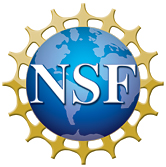Scholars, with CHANS-Net members’ help, identify sustainability’s 40 biggest questions
July 13, 2017
While science usually gets recognized for churning up big answers, Michigan State University (MSU) researchers are mining the big questions.
Sustainability scholars across the globe have made the leap to embrace integrative and interdisciplinary research, yet where to best place that energy hadn’t been well defined. In the journal Ecology and Society, a focus for understanding and managing coupled human and natural systems is gaining clarity thanks to surveys that asked scholars what were the most important questions
In part, it’s an acknowledgment of the mainstreaming and maturing of integrative research. Earlier generations of scientists were regarded as renegades if they branched out into separate disciplines. Now CHANS-Net serves as a groundswell of thought on where such science should go.
“Top 40 Questions in Coupled Human and Natural Systems (CHANS) Research” highlights the current view of researchers active in the field on research questions to pursue in order to maximize impact on understanding and managing coupled human and natural systems for achieving sustainable development goals and addressing emerging global challenges.
“While similar horizon-scanning exercises have been done in other disciplines, this is the first by and for the CHANS community,” said MSU associate professor Dan Kramer. “We are a diverse group, and even CHANS researchers – a great majority of whom describe themselves as interdisciplinary – rightly focus on particular problems through particular lenses. Occasionally, it is worthwhile to step back and assess the broader communities’ current thinking for perspective and perhaps for an indication of what is to come in the field.”
CHANS-Net was founded in 2009 by Jianguo “Jack” Liu, MSU Rachel Carson Chair in Sustainability and director of the Center for Systems Integration and Sustainability, along with other scholars practicing and advocating for CHANS work. It emerged at a time the National Science Foundation had ramped up funding for such research. CHANS-Net was funded by NSF, aspiring to create a network of like-minded scholars looking for collaborators and inspiration.
CHANS-Net has since grown to more than 1,700 members across the world. It was these scholars Kramer and his colleagues surveyed – twice – to find what they found to be the most important questions.
“Science is changing to meet the world’s most critical challenges to sustainability,” Liu said. “Already, research on coupled human and natural systems has evolved to the telecoupling framework, enabling us to even more holistically understand how humans and nature interact across the globe. It is an important, and exciting, time to be asking these questions.”
Kramer agreed, adding, “I hope similar assessments of the CHANS community continue periodically as a way to take stock of where we are, where we’re going, to prioritize, and to plan. Global sustainability is the central challenge of our time and requires an all-hands-on-deck approach.”
In addition to Liu and Kramer, the paper was authored by Joel Hartter, Angela Boag, Meha Jain, Kara Stevens, Kimberly Nicholas and William McConnell.
Contact:








